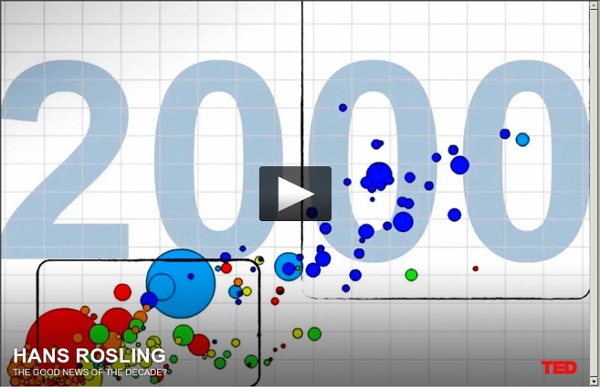



http://www.ted.com/talks/hans_rosling_the_good_news_of_the_decade.html
Don’t Panic — End Poverty Hans Rosling asks: Has the UN gone mad? The United Nations just announced their boldest goal ever: To eradicate extreme poverty for all people everywhere, already by 2030. Looking at the realities of extremely poor people the goal seems impossible. The rains didn’t fall in Malawi this year. The poor farmers Dunstar & Jenet, gather a tiny maize harvest in a small pile on the ground outside their mud hut. But Dunstar & Jenet know exactly what they need to break the vicious circle of poverty. Healthy Food Combinations: Men Tomatoes are rich in lycopene, a pigment-rich antioxidant known as a carotenoid, which reduces cancer risk and cardiovascular disease. Fats make carotenoids more bioavailable, a fact that makes a strong case for adding tomatoes to your guacamole. "This also has a Mediterranean cultural tie-in," says registered dietitian Susan Bowerman of California Polytechnic State University.
Gapminder: Unveiling the beauty of statistics for a fact based world view. Your taxes: What you pay and what you get back x These figures put all the households in the UK into one of ten equally-sized groups, or deciles. The bottom have the least disposable income, the top have the most. The 'average disposable income' means the household income leftover after direct taxes have been paid and this figure has also been equivalised. Theory of mind Definition[edit] Theory of mind is a theory insofar as the mind is not directly observable.[1] The presumption that others have a mind is termed a theory of mind because each human can only intuit the existence of his/her own mind through introspection, and no one has direct access to the mind of another. It is typically assumed that others have minds by analogy with one's own, and this assumption is based on the reciprocal nature of social interaction, as observed in joint attention,[4] the functional use of language,[5] and the understanding of others' emotions and actions.[6] Having a theory of mind allows one to attribute thoughts, desires, and intentions to others, to predict or explain their actions, and to posit their intentions. Theory of mind appears to be an innate potential ability in humans; one requiring social and other experience over many years for its full development.